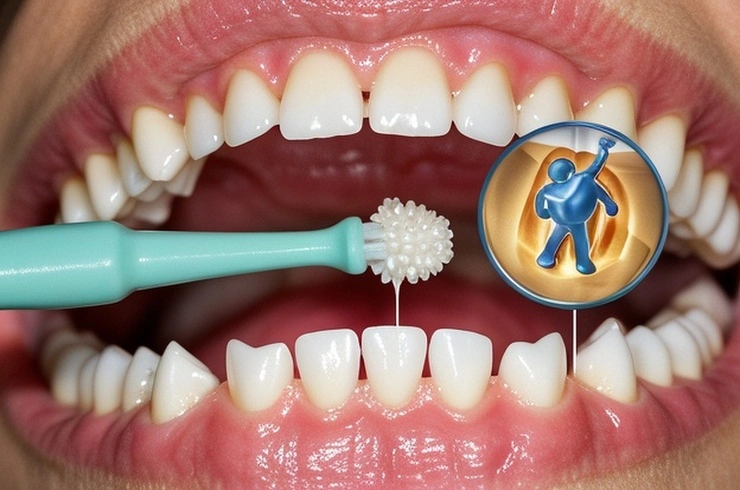
Tooth decay, often overlooked as a mere inconvenience, is in fact an infectious disease with serious implications for your oral and overall health. The primary culprit? Acid. This acid is produced by bacteria thriving on food particles left behind on your teeth. Over time, this acidic environment erodes your enamel, the hard outer layer of your teeth, creating cavities. If left untreated, these cavities can progress, causing pain, infection, and ultimately, tooth loss.
While tooth decay is a disease, it's a highly preventable one. The cavity-causing bacteria are often transmitted from mothers to children early in life, typically through shared utensils or saliva. Once present, these bacteria are chronic, but their presence doesn't guarantee cavities. A combination of diligent oral care and a healthy diet is key to maintaining strong enamel and preventing decay.
According to the National Institute of Dental and Craniofacial Research, tooth decay begins when specific bacteria convert sugars into acids. Initially, this process, known as demineralization, can lead to white spots or discoloration on the teeth. At this early stage, decay can often be reversed through remineralization with fluoride treatments and good oral hygiene. However, once a cavity forms and penetrates the enamel, it can no longer be reversed naturally. If decay progresses further into the dentin or tooth roots, more intensive treatments like root canals or extractions may become necessary to prevent infection. This highlights the critical importance of preventing decay before it takes hold.
Fortunately, preventing tooth decay and even reversing early stages is achievable through several simple practices:
Brush twice and floss once daily using proper techniques.
Always use fluoride toothpaste to strengthen enamel.
Avoid sugary and starchy snacks between meals, as these feed harmful oral bacteria.
Chew sugarless gum with Xylitol when brushing isn't possible; it helps reduce harmful bacteria.
Limit consumption of enamel-damaging beverages like soda, sports drinks, and acidic fruit juices.
Schedule regular dental checkups and cleanings.
For additional protection, your dentist might recommend fluoride varnish or gel applications or dental sealants. Sealants are thin plastic coatings applied to the chewing surfaces of molars, effectively smoothing out grooves and pits where food particles can get trapped, thus preventing decay in these high-risk areas.
You can also naturally combat tooth decay by fostering a healthy oral microbiome. Probiotics containing Lactobacillus or Bifidobacterium strains, as well as fermented foods like yogurt and kefir, can help boost beneficial bacteria in your mouth.
As we age, vigilant oral care becomes even more crucial. Gum recession can expose softer root tissue, making older adults more susceptible to deeper cavities. Existing fillings may also degrade over time, creating new opportunities for decay. More frequent dental visits and possibly an electric toothbrush can help maintain oral health into your later years.
Pro Tip
The content of the article is shared by netizens, please carefully identify it